10 Best Herbal Decoctions For Hypertension

Herbal decoctions have been traditionally used to manage hypertension by promoting relaxation of blood vessels and reducing stress-related spikes in blood pressure.
Common herbs such as hawthorn, garlic, and ginger are often included in these decoctions due to their natural vasodilatory and anti-inflammatory properties. These preparations are typically made by simmering the dried plant material in water for an extended period to extract their active compounds. While some studies suggest potential benefits, it is important to consult a healthcare provider before using herbal decoctions, as they may interact with prescribed medications.
Overall, herbal decoctions can be a complementary approach to hypertension management when used safely and under professional guidance.
Table of Contents
- 1. Ginger (Zingiber officinale)
- 2. Common grape (Vitis vinifera)
- 3. Tulsi (Ocimum sanctum)
- 4. Ginkgo (Ginkgo biloba)
- 5. Salvia (Salvia officinalis)
- 6. Red sage (Salvia miltiorrhiza)
- 7. Panax ginseng (Panax ginseng)
- 8. Licorice (Glycyrrhiza glabra)
- 9. Black cumin (Nigella sativa)
- 10. Black pepper (Piper nigrum)
1. Ginger (Zingiber officinale)

Zingiber officinale, commonly known as ginger, has been traditionally used in herbal medicine for its potential cardiovascular benefits.
Herbal decoctions made from fresh or dried ginger root are believed to help manage hypertension by promoting blood circulation and reducing oxidative stress. Studies suggest that ginger contains bioactive compounds such as gingerol and shogaol, which may contribute to lowering blood pressure through anti-inflammatory and antithrombotic effects. However, while some research supports its use as a complementary therapy, more clinical trials are needed to confirm its efficacy and safety for hypertension management.
It is advisable to consult a healthcare professional before incorporating ginger decoctions into a hypertension treatment regimen.
2. Common grape (Vitis vinifera)
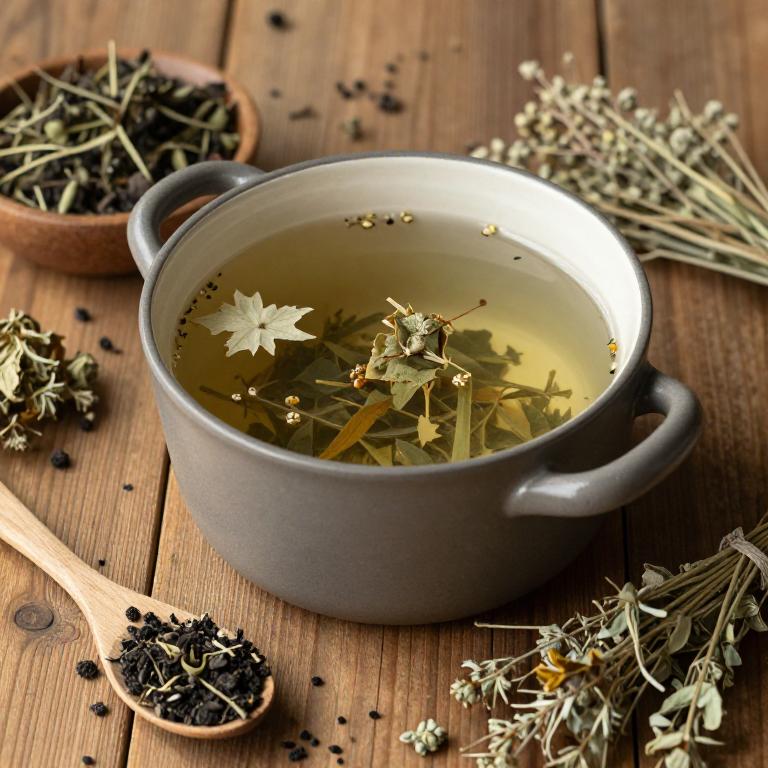
Vitis vinifera, commonly known as the grapevine, has been traditionally used in herbal medicine for its potential cardiovascular benefits, including its role in managing hypertension.
Herbal decoctions made from the seeds, leaves, or roots of Vitis vinifera are believed to contain bioactive compounds such as resveratrol, which may help regulate blood pressure by improving endothelial function and reducing oxidative stress. Some studies suggest that regular consumption of Vitis vinifera decoctions may contribute to lowering systolic and diastolic blood pressure levels in individuals with mild to moderate hypertension. However, further clinical research is needed to establish standardized dosages and long-term safety, especially when combined with conventional antihypertensive medications.
Despite these considerations, Vitis vinifera herbal decoctions are often explored as complementary therapies in integrative approaches to hypertension management.
3. Tulsi (Ocimum sanctum)
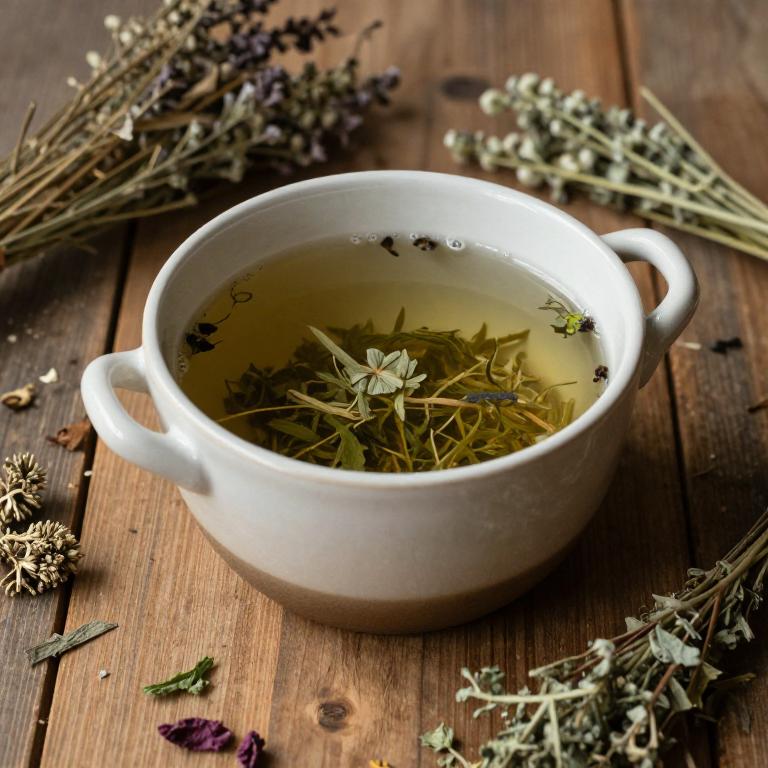
Ocimum sanctum, commonly known as holy basil, has been traditionally used in Ayurvedic medicine for its various health benefits, including its potential role in managing hypertension.
Herbal decoctions made from Ocimum sanctum leaves are prepared by boiling the fresh or dried leaves in water, resulting in a nutrient-rich infusion that is consumed regularly. Studies suggest that the active compounds in holy basil, such as eugenol and rosmarinic acid, may help lower blood pressure by reducing oxidative stress and improving vascular function. These decoctions are often recommended as a complementary therapy alongside conventional treatments for hypertension.
However, it is important to consult a healthcare professional before using holy basil decoctions, as they may interact with certain medications or have side effects in some individuals.
4. Ginkgo (Ginkgo biloba)
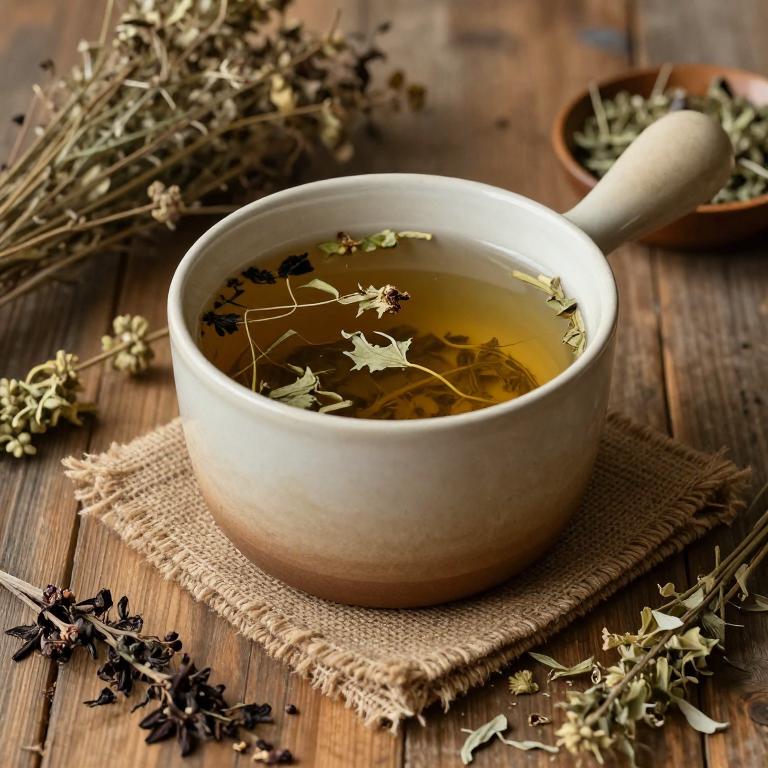
Ginkgo biloba, an ancient tree known for its medicinal properties, has been traditionally used in herbal decoctions to support cardiovascular health.
These decoctions typically involve simmering the leaves in water to extract bioactive compounds such as flavonoids and terpenoids, which are believed to have antioxidant and anti-inflammatory effects. Some studies suggest that ginkgo biloba may help improve blood flow and reduce oxidative stress, potentially benefiting individuals with hypertension. However, while preliminary research is promising, more clinical trials are needed to confirm its efficacy and safety for managing high blood pressure.
As with any herbal remedy, it is important to consult a healthcare provider before using ginkgo biloba, especially for those already on medication for hypertension.
5. Salvia (Salvia officinalis)

Salvia officinalis, commonly known as sage, has been traditionally used in herbal medicine for its potential cardiovascular benefits.
Recent studies suggest that sage may help in managing hypertension due to its rich content of flavonoids and phenolic compounds, which exhibit antioxidant and anti-inflammatory properties. These bioactive compounds may contribute to the relaxation of blood vessels and improved blood flow, thereby reducing blood pressure. Herbal decoctions made from sage leaves are often prepared by simmering the dried leaves in water for several minutes, allowing the active components to be extracted.
While preliminary research is promising, more clinical trials are needed to fully establish the efficacy and safety of sage decoctions as a complementary therapy for hypertension.
6. Red sage (Salvia miltiorrhiza)
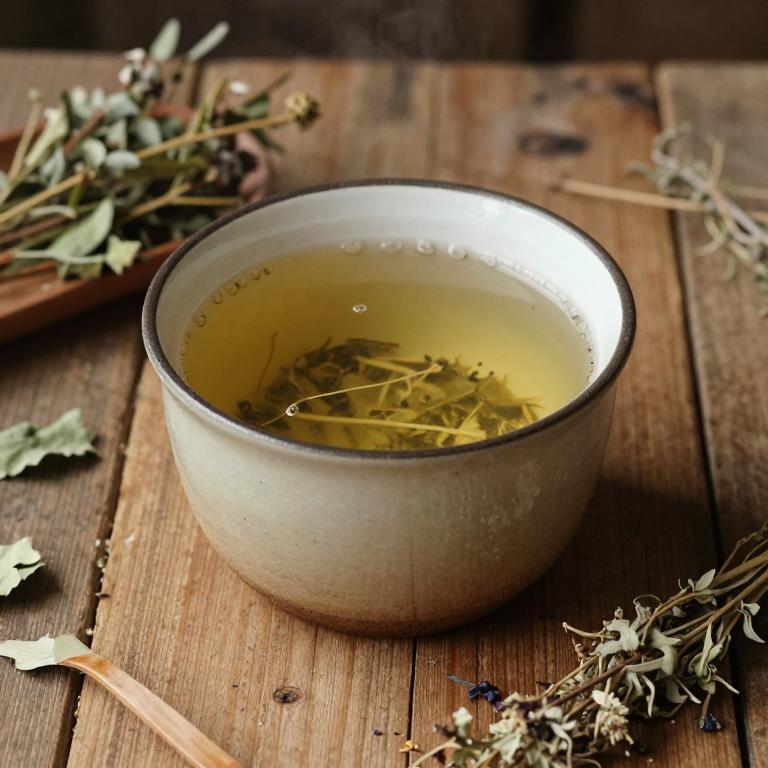
Salvia miltiorrhiza, commonly known as Danshen, has been traditionally used in Chinese medicine for its cardiovascular benefits, including its potential to manage hypertension.
Herbal decoctions made from Salvia miltiorrhiza contain active compounds such as tanshinone and salvianolic acid, which exhibit antioxidant, anti-inflammatory, and vasodilatory properties. These compounds may help reduce blood pressure by improving endothelial function and reducing oxidative stress in the vascular system. Clinical studies suggest that Salvia miltiorrhiza decoctions may complement conventional antihypertensive treatments, though more research is needed to establish their efficacy and safety.
As with any herbal remedy, it is important to consult a healthcare provider before using Salvia miltiorrhiza for hypertension to ensure proper integration with existing medical therapies.
7. Panax ginseng (Panax ginseng)
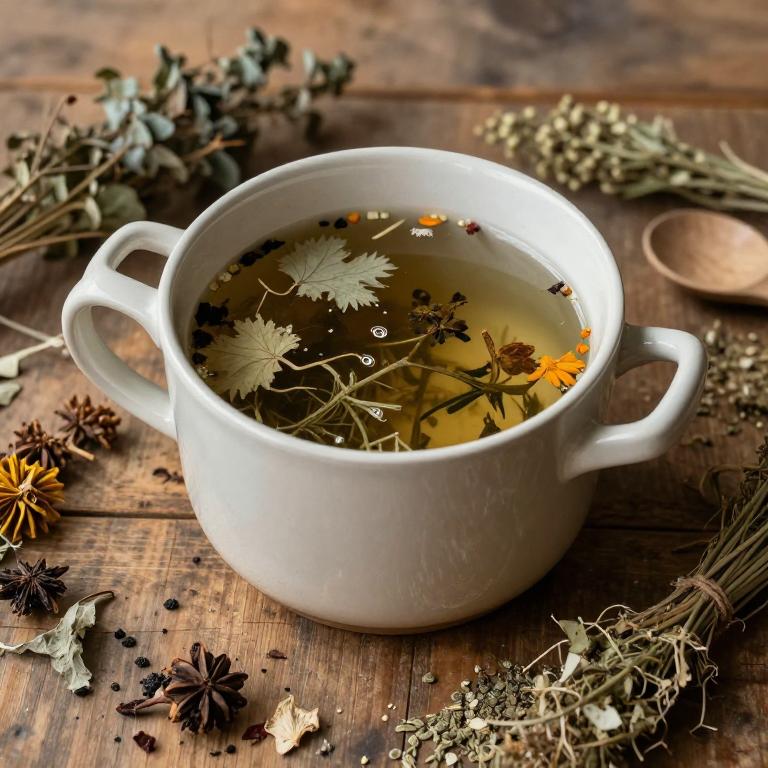
Panax ginseng, a widely used adaptogenic herb, has been studied for its potential role in managing hypertension through herbal decoctions.
These decoctions, typically prepared by boiling the roots in water, are believed to enhance cardiovascular function and reduce stress-induced blood pressure. Research suggests that the active compounds in Panax ginseng, such as ginsenosides, may help regulate blood pressure by improving endothelial function and reducing oxidative stress. However, while some studies indicate promising results, more clinical trials are needed to establish its efficacy and safety in treating hypertension.
It is important to consult with a healthcare provider before using Panax ginseng as a complementary therapy for hypertension.
8. Licorice (Glycyrrhiza glabra)

Glycyrrhiza glabra, commonly known as licorice root, has been traditionally used in herbal medicine for its potential cardiovascular benefits.
Herbal decoctions made from Glycyrrhiza glabra contain compounds like glycyrrhizin, which may influence blood pressure regulation. Some studies suggest that licorice root may help lower blood pressure by promoting the excretion of sodium and increasing potassium levels in the body. However, long-term use of licorice root can lead to side effects such as hypertension, due to its effect on the renin-angiotensin system.
As a result, it is important to use licorice root under the guidance of a healthcare professional, especially for individuals with existing hypertension or related conditions.
9. Black cumin (Nigella sativa)
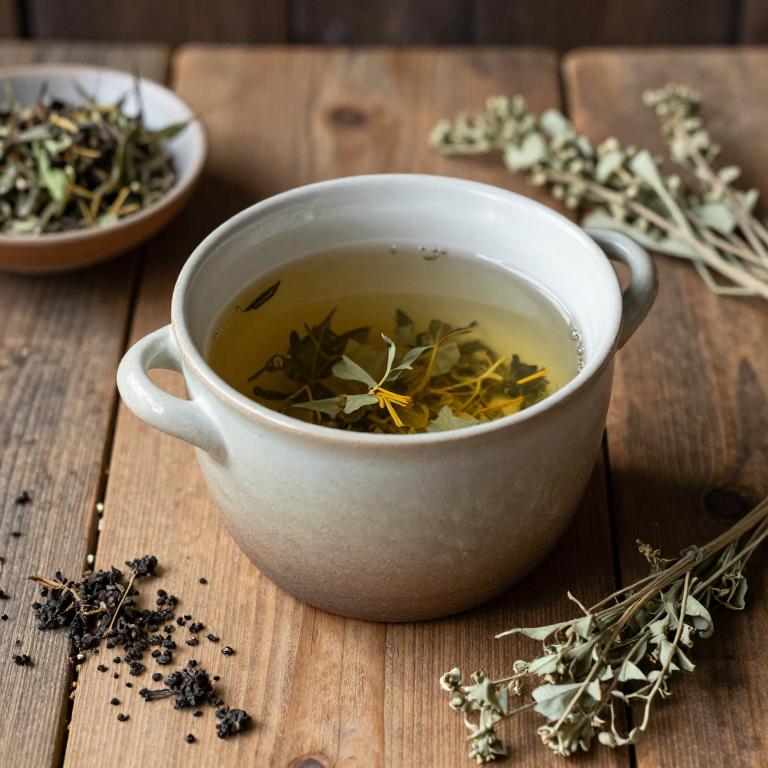
Nigella sativa, commonly known as black cumin, has been traditionally used in herbal medicine for its potential health benefits, including its role in managing hypertension.
The active compound in Nigella sativa, thymoquinone, is believed to contribute to its antihypertensive effects by improving vascular function and reducing oxidative stress. Herbal decoctions made from Nigella sativa seeds are often prepared by soaking the seeds in water and then boiling them to extract the beneficial compounds. Some studies suggest that regular consumption of these decoctions may help lower blood pressure levels, though more research is needed to confirm their efficacy and safety.
As with any herbal remedy, it is advisable to consult a healthcare professional before using Nigella sativa for hypertension management.
10. Black pepper (Piper nigrum)

Piper nigrum, commonly known as black pepper, has been traditionally used in herbal medicine for its potential cardiovascular benefits.
Herbal decoctions of black pepper involve boiling the dried fruit of the plant in water to extract its active compounds, such as piperine and various alkaloids. Preliminary studies suggest that these decoctions may help in lowering blood pressure by improving circulation and reducing oxidative stress. However, more clinical research is needed to confirm their efficacy and safety for hypertension management.
As with any herbal remedy, it is important to consult a healthcare professional before incorporating piper nigrum decoctions into a treatment plan for hypertension.